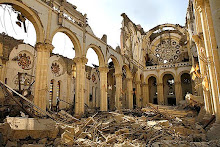Luke 14:1-11i
One sabbath when he went to dine at the house of a ruler who belonged to the Pharisees, they were watching him. 2 And behold, there was a man before him who had dropsy. 3 And Jesus spoke to the lawyers and Pharisees, saying, “Is it lawful to heal on the sabbath, or not?” 4 But they were silent. Then he took him and healed him, and let him go. 5 And he said to them, “Which of you, having an ass[a] or an ox that has fallen into a well, will not immediately pull him out on a sabbath day?” 6 And they could not reply to this.
Humility and Hospitality
7 Now he told a parable to those who were invited, when he marked how they chose the places of honor, saying to them, 8 “When you are invited by any one to a marriage feast, do not sit down in a place of honor, lest a more eminent man than you be invited by him; 9 and he who invited you both will come, and say to you, ‘Give place to this man,’ and then you will begin with shame to take the lowest place. 10 But when you are invited, go and sit in the lowest place, so that when your host comes he may say to you, ‘Friend, go up higher’; then you will be honored in the presence of all who sit at table with you. 11 For every one who exalts himself will be humbled, and he who humbles himself will be exalted."Homily by St. Ambrose, Bishop of Milan.
Bk. vii. on Luke xiv.
Now is healed this man sick of the dropsy, in whom too much watery matter had well-nigh drowned the functions of life, and quenched the fire of understanding. Anon, a lesson is given in lowly-mindedness, when it is forbidden to the guests at a marriage feast to go and sit down unasked in the highest room, albeit the Lord spake gently, that the teaching of courtesy might forestall a harsh rebuke, reason prevail by dint of persuasion, and the desires be bent to follow the instruction. And upon this, as next-door neighbour, cometh courtesy, which is so called by the Lord, when it is shown to the poor and weak, since to show it to them from whom we are to receive aught, is but a movement of self-interest.








